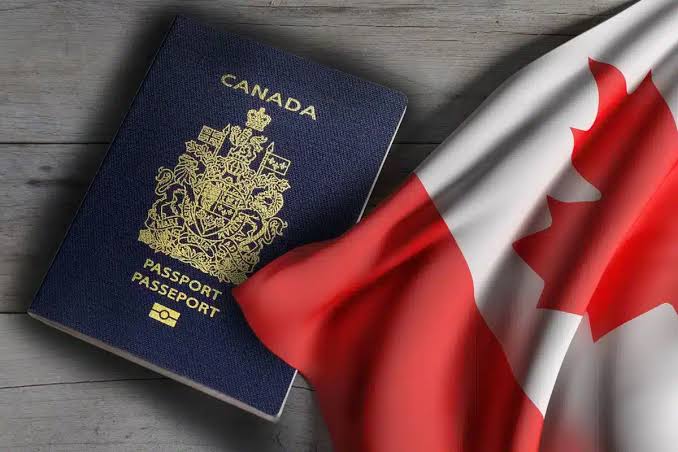How to Migrate to Canada as a Skilled Worker in 2025

Canada is a top destination for skilled workers seeking new opportunities due to its strong economy, diverse culture, and high quality of life. The Federal Skilled Worker Program (FSWP), managed under the Express Entry system, is the primary pathway for skilled professionals to immigrate as permanent residents.

Overview of the Federal Skilled Worker Program (FSWP)
The FSWP targets skilled workers with the education, work experience, and language skills needed to contribute to Canada’s economy. It operates under the Express Entry system, which ranks candidates based on a Comprehensive Ranking System (CRS) score. Successful applicants receive permanent residence, allowing them to live, work, and eventually apply for citizenship after meeting residency requirements.
Eligibility Criteria
To qualify for the FSWP, candidates must meet specific requirements:
-
Work Experience: At least one year of continuous, full-time (or equivalent part-time) paid work experience in a skilled occupation within the last 10 years. The occupation must fall under National Occupational Classification (NOC) TEER categories 0 (management), 1 (university degree-level), 2 (college diploma or apprenticeship), or 3 (college diploma or short apprenticeship). The work must total at least 1,560 hours (30 hours/week for 12 months).
-
Education: A minimum of a Canadian high school diploma or equivalent. Foreign credentials require an Educational Credential Assessment (ECA) to confirm Canadian equivalency.
-
Language Proficiency: Proficiency in English or French, demonstrated by a recognized test (e.g., IELTS for English, TEF for French). Candidates must score at least Canadian Language Benchmark (CLB) 7 in all four abilities: reading, writing, speaking, and listening.
-
Selection Factors: Candidates must score at least 67 out of 100 points on the FSWP points grid, which evaluates age, education, work experience, language skills, arranged employment, and adaptability (e.g., previous Canadian experience or relatives in Canada).
-
Proof of Funds: Unless you have a valid job offer, you must show sufficient funds to support yourself and your family after arriving in Canada. The amount varies based on family size (e.g., CAD 14,690 for a single person in 2025).
-
Admissibility: Applicants must pass medical exams and security background checks.
Application Process
-
Confirm Eligibility: Use the FSWP points calculator to ensure you score at least 67 points. Check if your occupation is eligible under NOC TEER 0, 1, 2, or 3.
-
Obtain Required Documents: Gather your ECA report, language test results, passports, and proof of funds. If you have a job offer, ensure it meets Express Entry requirements.
-
Create an Express Entry Profile: Submit an online profile through the Immigration, Refugees, and Citizenship Canada (IRCC) website, providing details about your skills, education, work experience, and language proficiency. You’ll receive a CRS score based on factors like age (max points for 18-35), education, experience, and additional points for job offers or provincial nominations.
-
Enter the Express Entry Pool: Your profile is ranked against others in the pool. IRCC conducts draws every few weeks, issuing Invitations to Apply (ITAs) to the highest-scoring candidates.
-
Receive an ITA and Apply: If invited, submit a complete permanent residence application within 60 days, including all required documents and fees (approximately CAD 1,525 per adult, including the right of permanent residence fee).
-
Processing and Approval: Processing typically takes around six months. If approved, you’ll receive a Confirmation of Permanent Residence (COPR) and can move to Canada.
Tips to Boost Your CRS Score
-
Improve Language Skills: Higher language test scores (e.g., CLB 9) significantly increase your CRS points.
-
Gain More Work Experience: Additional years of skilled work experience add points.
-
Pursue Higher Education: A degree or diploma can enhance your score.
-
Secure a Job Offer: A valid job offer from a Canadian employer can add 50-200 CRS points, though it’s not mandatory.
-
Apply for Provincial Nomination: A nomination from a province adds 600 CRS points, greatly improving your chances of receiving an ITA.
READ ALSO: Skilled Trade Jobs with Work Visa Support
FAQs
What is the difference between FSWP points and CRS points?
The FSWP points grid (minimum 67/100) determines eligibility to enter the Express Entry pool. The CRS score ranks candidates in the pool based on broader factors, including provincial nominations and job offers. A high CRS score is crucial for receiving an ITA.
Do I need a job offer to apply for the FSWP?
No, a job offer is not required, but a valid offer from a Canadian employer can add 50-200 CRS points, improving your ranking.
Can I include my family in my application?
Yes, you can include your spouse, common-law partner, and dependent children. They must also meet admissibility requirements, and you’ll need to show sufficient funds for the family size.
What happens if my CRS score is low?
You can improve your score by retaking language tests, gaining more work experience, or obtaining a provincial nomination. Alternatively, explore other programs like the Provincial Nominee Program (PNP) or Canadian Experience Class (CEC).

